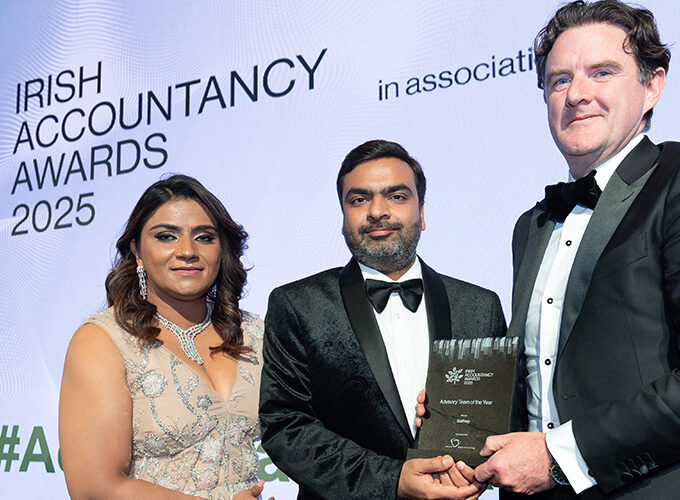Ireland is a very popular strategic European tax base for international companies, owing to low corporate taxes, a highly skilled workforce, and a business-orientated culture.
Some of the many benefits of companies relocating to Ireland include a corporate tax rate of 12.5%, beneficial research and development (R&D) tax credits (increasing to 30% for accounting periods beginning on or after 1 January 2024), the knowledge development box (KDB) relief (6.25%), a developed holding company regime, and an extensive network of double tax treaties.
However, in this article we focus on the tax and visa implications for relocating employees and key business personnel to Ireland.
Income tax
Individuals are subject to income tax in Ireland based on their tax residence and domicile position.
Foreign nationals coming to work in Ireland will retain their domicile of origin. However, the length of time an individual spends in Ireland will determine whether they become Irish tax resident. An individual is regarded as Irish tax resident if he/she spends:
- More than 183 days in Ireland in a tax year (1 January to 31 December); or
- More than 280 days over two tax years (becoming tax resident in the second year).
Foreign nationals who become Irish tax resident, but are not Irish domiciled, will be taxed on the ‘remittance basis’. This means that they are taxed in Ireland on Irish employment income, Irish source income and non-Irish source income only to the extent they remit it to Ireland.
Ireland’s income tax rates start at 20 % for the first €42,000 (as of 2024) (higher if married) and then 40% on the remaining income.
Individuals working in Ireland must also pay Universal Social Charge which has a sliding scale from 0.5% to 8%.
Employee Pay-Related Social Insurance (PRSI) is an employee’s contributions to the Social Insurance Fund in Ireland, which is at a rate of 4%. However, it is generally possible for an individual coming to work in Ireland to remain on their home country social insurance for a period of up to five years and hence be exempt from this contribution.
These tax and social insurance rates give rise to a marginal tax rate of up to 52% (48% if remaining on their home country social insurance) depending on the level of Irish income received.
Pay as you Earn (PAYE)
PAYE is the withholding mechanism that applies to income tax (20%/40%) on salary and benefits paid to individuals working in Ireland. Regardless of whether an individual becomes Irish tax resident, they will fall within Irish PAYE legislation once they spend more than 60 workdays in Ireland in a tax year.
If the individual comes from a country with which Ireland has a double taxation agreement, it is possible to obtain an exemption from the requirement to withhold PAYE, subject to certain conditions, if the individual spends fewer than 183 days in Ireland. However, the employer must make an application to the Irish Revenue for this exemption or it will not apply.
Once it is expected that an individual will spend more than 183 days in Ireland in a tax year, PAYE must be applied to all salary and benefits.
Employee tax incentives
Ireland’s Revenue is conscious that Ireland’s relatively high income tax rates have created difficulties in attracting key personnel of multinationals to work in Ireland. Some of the incentives introduced to mitigate the challenge include:
Special Assignee Relief Programme (SARP)
The Irish government introduced SARP as a means of reducing the high income tax burden for inbound employees of multinational companies. SARP provides relief from income tax on 30% of the employees’ income between lower threshold of €100,000 and upper threshold of €1,000,000.
Some of the key conditions to be satisfied are:
- The employee must arrive before the end of 2025;
- The relief applies to companies incorporated and tax resident in double tax treaty countries;
- The employee must hold an Irish PPSN;
- The employee will work in Ireland for a minimum period of 12 months;
- The employee must not have been tax resident in Ireland for the five years immediately preceding the first tax year in which the relief is claimed. The relief is then available for up to five consecutive tax years provided the employee is tax resident in Ireland; and
- The employee must have a minimum base salary of €100,000 per annum (excluding benefits in kind, bonuses and stock options).
Key Employee Engagement Programme (KEEP)
KEEP applies capital gains tax (currently 33%) rather than income tax (currently up to 52% including the Universal Social Charge) to gains arising on qualifying share options. Some of the key conditions to be satisfied are:
- Options must be granted between 1 January 2018 and 31 December 2025;
- Options must be exercised within 10 years of the grant; and
- It only applies to employees or directors who have less than 15% beneficial ownership of the company.
Visas and working authorisations
Ireland has a number of options for professionals looking to relocate to Ireland.
It should be noted that both EEA and British citizens can live and work in Ireland without the need for visa entry or a working authorisation and hence are not impacted by the rules outlined below.
For those entering and looking to take up employment in Ireland it is important to note the difference between:
Visa required countries – where you need to apply for a visa prior to entry into the state; Non-visa required countries – where you can stay in Ireland for up to 90 days without the requirement to register with the Irish Immigration Authority (INIS). If you wish to conduct business meetings or working activities for more than 14 days during that time, you must apply for the correct working permission. Greater than 14 days but less than 90 days would require an Atypical Working Scheme authorisation, while greater than 90 days would require an employment permit application.
Long-term employment in Ireland (greater than two years)
Critical Skills Employment Permit (CSEP)
The CSEP was created to attract highly skilled individuals to Ireland with the aim that they would take up permanent residence. These individuals are those with skills in demand in the Irish labour market (for example highly skilled engineers, certain qualified accountants, technologists, etc.) There is a specific list of eligible roles that can access this.
A CSEP holder has the benefit of automatic family reunification which allows the permit holder’s spouse to take up employment in Ireland without the need for his/her own permit.
The individual can apply for Irish Citizenship when they have completed two years working in Ireland on a CSEP.
General Employment Permit (GEP)
This permit allows for application for a wider variety of roles and can be obtained in respect of a 12-month contract, compared with CSEP which has a minimum of two years employment. The application can be submitted by the employee or the employer.
A GEP however does not allow for automatic family reunification. Family members can join once the permit holder can financially support them.
Summary
It is likely that Ireland will continue to be a favourable location for multinational companies expanding into Europe and hence there will be a need for key personnel to come to Ireland.
Saffery can provide advice on all aspects of relocating employees to Ireland.











